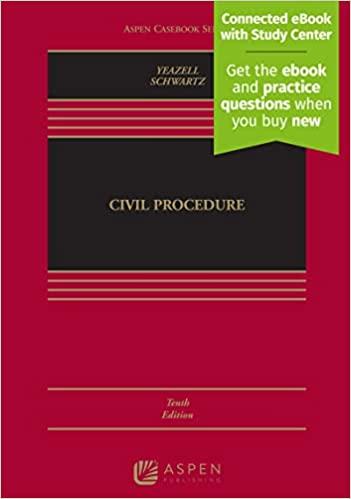Question
Salmon (lessee) held that Meinhard (partner coavemturer) signed the lease as a fiduciary for himself and Meinhard. Had Salmon warned Meinhard of the plan instead
Salmon (lessee) held that Meinhard (partner coavemturer) signed the lease as a fiduciary for himself and Meinhard.
Had Salmon warned Meinhard of the plan instead of preempting the opportunity for himself the two could have competed properly for the agreement and he would not have been under a duty.
The very fact that Salmon was slowly in charge pf directing the venture more obviously charges him with a duty of disclosure to equalize the opportunity. Salmon was more than a co-adventurer he was a managing co-adventurer.
For him and for those like him the rule pf undivided loyalty is relentless and superme. The problem might be differentif Salmon had received from Gerry (Gerry is the lessor) the opportunity to lease a property at a location far removed from the Meinhard Salmon leasehold. However, the new lease involved the extension and enlargement of the former lease. In terms of remedy, Salmon should retain managerial control over the new leasehold, as was his right from the beginning of the co-adventure.
Salmon will receive half the shares of stock plus an additional share to maintain his control and Meinhard will receive the remainder.
To recap, the court held joint adventures have the duties to one another of the finest loyalty, and not just honor but the punctilio of an honor of the most finest.
Salmon held the leaser as a fiduciary for him self and Meinhard. In addition, Salmon had a heightened duty to disclose as a manager of all the affairs because he was Meinhard only source of information.
Several other facts make the fact tha Salmon executed the least behind Meinhards back a breach of his fiduciary duty.
First it was reasonable for Meinhard to assume Salmon would notify him if there was a substantial change on circumstances and silence near the end of the lease could be taken as a sign that the lease would be extended in one way or another. Next, the subject matter of the lease was an extension and enlargement pf the original lease, because the new lease involved the same property and type of business. Finally, because Salmon was approached as the manager of the lease, he held in as a fiduciary, he only learned of tge opportunity because of the capacity in the venture with Meinhard. Salmon at the very least breached his duty to disclose information to Meinhard and should have given him a chance to compete for the deal.
The Dissent judge said, The new lease was not an extension of the old. Gerry had refused to extend the existing lease. It concerned new property and there was no goodwill carried over from the new lease.
Meinhard made no claims that Salmon defrauded him, not that Salmon made any misrepresentations. Salmon fulfilled the terms of the joint venture and it ended. Salmon was free to pursue personal ventures and did not own Meinhard any duties with regard to the new lease.
If this case arose today and a court applied UPA 404, would the result be clearer?
What if this case were decided under contract principles? Would the implied covenant of good faith and fair dealing help Salmon? Meinhard?
Suppose Meinhard based his claim on agency law rather than partnership law. Would the outcome change?
Step by Step Solution
There are 3 Steps involved in it
Step: 1

Get Instant Access to Expert-Tailored Solutions
See step-by-step solutions with expert insights and AI powered tools for academic success
Step: 2

Step: 3

Ace Your Homework with AI
Get the answers you need in no time with our AI-driven, step-by-step assistance
Get Started


